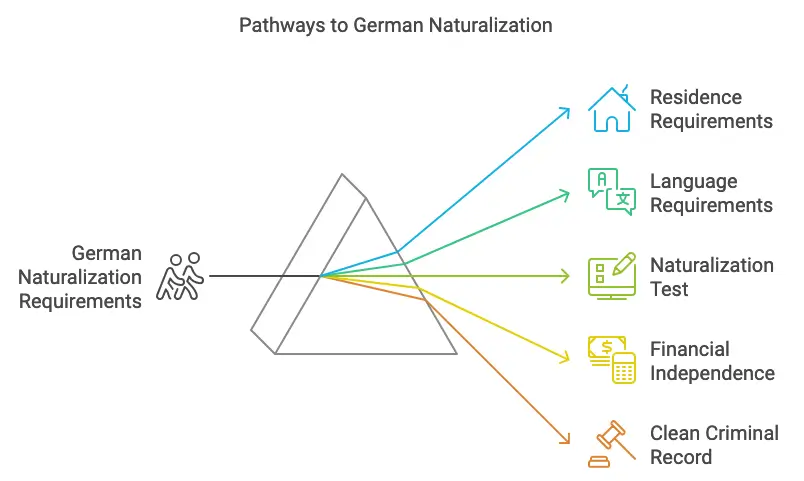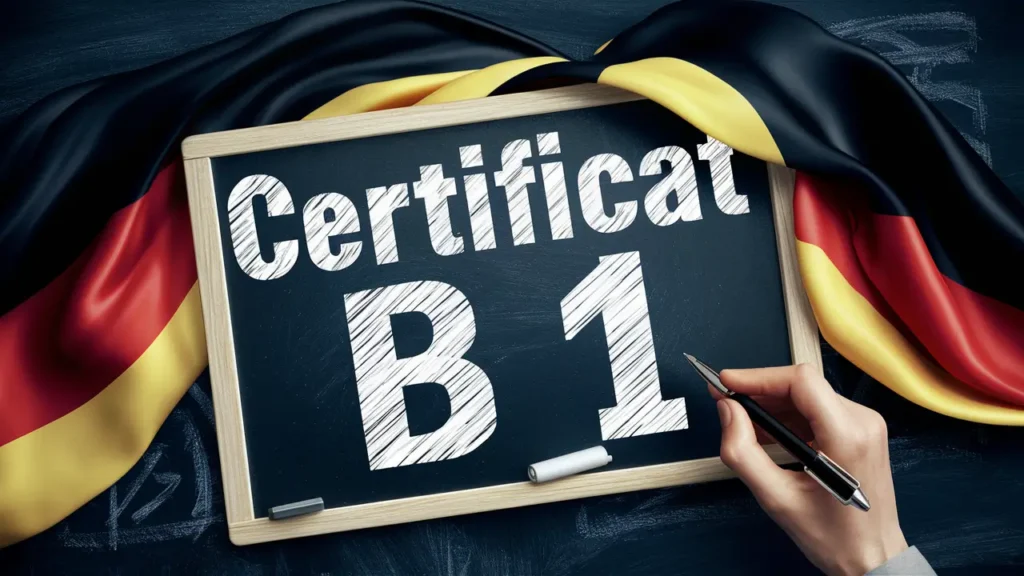Germany offers a path to citizenship for foreign nationals who meet certain requirements through a process called naturalization. This blog post aims to answer some common questions about naturalization in Germany based on information provided by the German government.
Who can apply for naturalization in Germany?
Any person aged 16 or older can apply for naturalization in Germany. For those under 16 years of age, a legal representative, usually their parents, can apply on their behalf.
Where do I submit the application?
Applications should be submitted to your local nationality authority (Staatsangehörigkeitsbehörde). If you are unsure which authority to contact, you can inquire at your local:
- town/city or district administration (Stadtverwaltung or Kreisverwaltung)
- borough office (Bezirksamt)
- foreigners authority (Ausländerbehörde)
- migration advice centre
What are the steps to naturalization?
Before applying, it is essential to gather information about the application process, forms, and required documents from the relevant nationality authority or their website.
The application process involves the following steps:
- Fill out the application forms completely.
- Gather all necessary supporting documents.
- Submit the application and all documents to your nationality authority.
Some authorities may also allow online applications. For more detailed information, consult the “Procedure” section of the German government’s website on naturalization.
What are the requirements for naturalization?

To be eligible for naturalization in Germany, you must meet certain requirements, including:
Residence Requirements:
- You must have legally resided in Germany for a minimum of five years.
- This residency must be continuous and Germany should be your primary place of residence.
- Periods of temporary suspension of deportation (Duldung) are not counted towards the five years.
- Time spent during the asylum procedure counts only if you have been granted asylum, recognized as a refugee under the Geneva Refugee Convention, or granted subsidiary protection.
Exceptions to the five-year residence requirement:
- Three-year residency: You can apply after three years of residency if you have shown significant integration efforts, such as achieving a B1 level in German language proficiency (as per the CEFR) on the German Test for Immigrants (DTZ). The authorities may waive the language requirement if you have completed an integration course, obtained a German school-leaving certificate, or have a German university degree.
- Less than five years: Naturalization is possible in under five years if you have a C1 or higher level of German and meet other requirements. This also applies to guest workers who entered West Germany before or on 30 June 1974, contract workers who entered East Germany before or on 13 June 1990, and their spouses who subsequently joined them in Germany, provided they can communicate in German in everyday life.
Language Requirements:
- Generally, you need at least a B1 level of German.
Exceptions to the B1 language requirement:
- Exceptions due to illness, disability, or age: If you cannot achieve B1 level due to illness, disability, or advanced age, you might still be eligible for naturalization if you can communicate verbally in everyday life and provide the necessary proof.
- Hardship cases: In certain hardship cases (Härtefall), you may be exempt from the B1 requirement if you can prove that your life circumstances, such as caring for a relative, prevent you from reaching that language level.
Naturalization Test:
- Individuals between 16 and 67 years old must pass the naturalization test, which assesses knowledge of Germany’s legal system, society, and way of life. The test costs €25.
- Practice questions for the test are available on our Website (Check the German Naturalization Exam questions), or on the Federal Office for Migration and Refugees (BAMF) website.
Exceptions to the naturalization test:
- Successful completion of an integration course and passing the Life in Germany test.
- Possessing a German school-leaving certificate.
- Holding a German university degree.
- Entering the country as a guest worker (before or on 30 June 1974) or a contract worker (before or on 13 June 1990), including spouses who joined them later.
- Medical certification of inability to take the test due to illness, disability, or old age.
Financial Independence:
- You must be able to financially support yourself and your dependents without relying on government assistance such as citizen’s benefit, social assistance (Sozialhilfe), or social allowance (Sozialgeld).
Exceptions to the financial independence requirement:
- Former guest or contract workers and their spouses who are receiving benefits due to circumstances beyond their control.
- Foreign nationals who have been employed full-time for at least 20 months in the past 24 months.
- Spouses or registered partners living with a minor child and a full-time working partner.
- Single parents or those caring for children with special needs who are unable to work full-time.
- Individuals receiving supplementary benefits due to a low pension despite a history of continuous employment.
- People with disabilities or illnesses who cannot fully support themselves financially may also be granted an exception at the discretion of the authorities.
Clean Criminal Record:
- Generally, naturalization is not possible if you have been convicted of a criminal offense.
Exceptions to the clean criminal record requirement:
- Minor offenses such as one-off convictions, warnings, fines (e.g. for minor traffic violations), financial penalties up to 90 daily rates, and suspended prison sentences up to three months (if successfully completed).
Note: Naturalization is not possible if the offense was motivated by racism, antisemitism, or contempt for humanity.
Can I keep my current citizenship if I become a German citizen?
Yes, Germany allows dual citizenship. However, the laws of your current country of citizenship might lead to the automatic loss of your previous citizenship upon naturalization in Germany. It is advisable to contact your country’s embassy or consulate for clarification.
What are the costs associated with naturalization?
The naturalization fee is €255 per person. For minors naturalized with their parents and without their own income, the fee is typically €51.
Additional costs may apply for:
- Naturalization test (€25)
- Proof of identity
- Language certificate
If you cannot afford the fees, you can inquire about reduced costs or payment installment options with the nationality authority.
What is the processing time for naturalization applications?
The processing time for naturalization applications can vary depending on individual circumstances and is generally 18 months or longer. The authorities may request additional supporting documents during the processing period.
Do I need to report any changes to my information after applying?
Yes, you are obligated to report any changes to your original details provided in the application to the nationality authority in writing. This includes changes to your address, surname (due to marriage), employment status, or any other relevant information.
Do my documents need to be valid throughout the naturalization process?
Yes, it is essential to have valid documents throughout the naturalization process, even if it is ongoing. Ensure that you renew any expiring documents.





